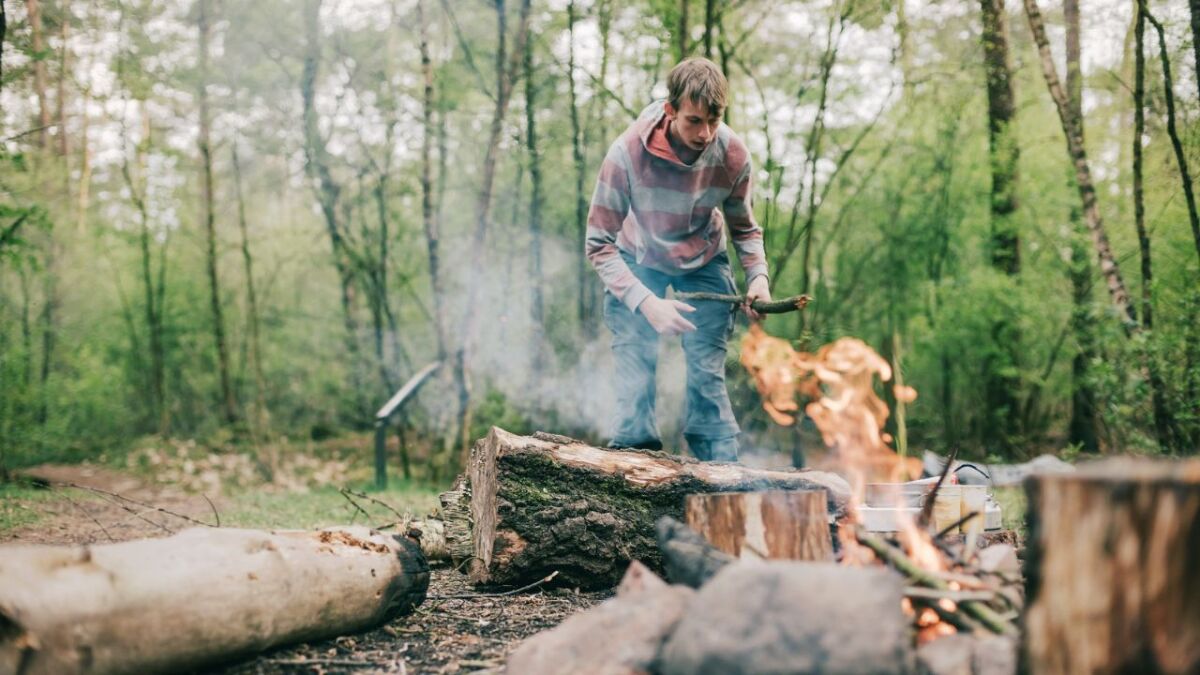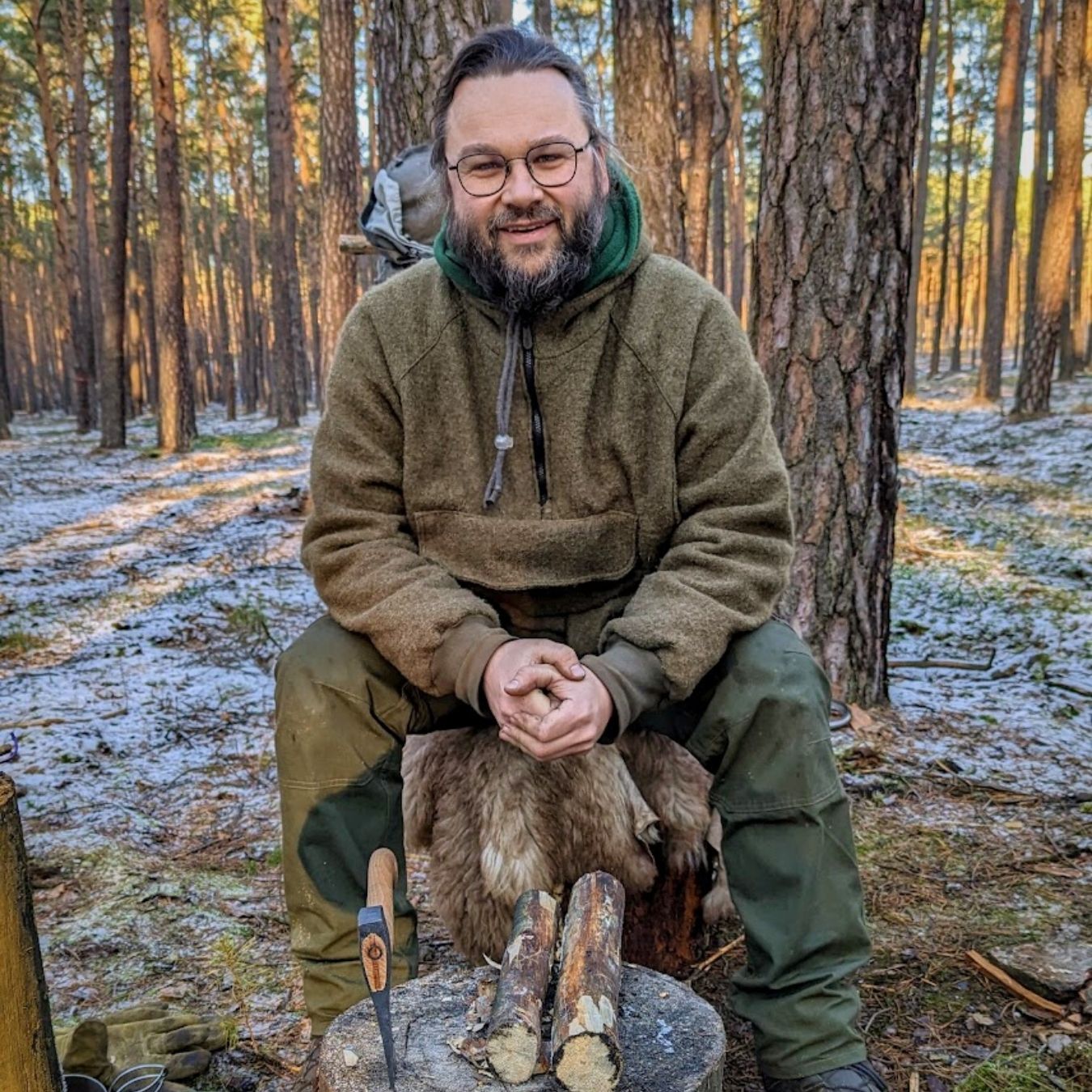
wilderness skills
Nomen
Meaning
Wilderness skills refer to the knowledge and abilities required to survive and thrive in the natural environment. These skills are essential for anyone venturing into the wilderness, whether it be for camping, hiking, or other outdoor activities. They encompass a wide range of techniques, including fire making, shelter building, navigation, foraging, and first aid. Wilderness skills enable individuals to adapt to their surroundings, overcome challenges, and make the most of available resources. They empower people to connect with nature, develop self-reliance, and enhance their overall outdoor experience. Mastering wilderness skills is crucial for anyone seeking to explore and enjoy the great outdoors.

Examples
„I love learning and practicing wilderness skills. They are essential for surviving and thriving in the great outdoors.“
„One of the most important wilderness skills is fire making. Being able to start a fire using natural materials is crucial for warmth, cooking, and signaling for help.“
„Another vital wilderness skill is shelter building. Knowing how to construct a sturdy and weatherproof shelter using available resources can mean the difference between comfort and exposure to the elements.“
„Navigation is a fundamental wilderness skill. Being able to read a map, use a compass, and navigate using natural landmarks is essential for finding your way in unfamiliar terrain.“
„Foraging for food and water is a valuable wilderness skill. Knowing how to identify edible plants, find clean water sources, and safely gather food from the wild can sustain you in a survival situation.“
Origin
The term "wilderness skills" refers to the knowledge and abilities required to survive and thrive in the wilderness. The word "wilderness" originates from the Old English word "wilddeornes," which means "wildness" or "desert." It is derived from the combination of "wild" and "deornes," which means "solitude" or "loneliness."
Throughout history, humans have relied on their skills and knowledge of the natural world to survive in the wilderness. These skills include hunting, fishing, foraging, shelter building, fire making, navigation, and first aid. They have been passed down from generation to generation, evolving and adapting to different environments and cultures.
In recent years, the interest in wilderness skills has grown, fueled by a desire to reconnect with nature, learn self-sufficiency, and develop a deeper understanding of the natural world. Many people now seek out courses, workshops, and books to learn these skills and apply them in outdoor adventures or emergency situations.
Wilderness skills have also become popular in the realm of bushcraft and survival. Bushcraft refers to the skills and knowledge of living in and utilizing natural environments, while survival focuses on the ability to endure and overcome challenging situations in the wilderness.
Overall, wilderness skills encompass a wide range of abilities and knowledge that enable individuals to thrive in the wild. They have a rich history and continue to evolve as people seek to connect with nature and develop self-reliance.
Synonyms
Bushcraft, Survival skills, Outdoor skills, Nature skills, Primitive skills, Wilderness knowledge, Backcountry skills, Woodcraft
Antonyms
Civilization, Urban living, Modernity, Technology, Comfort, Convenience, City life, Domestication
Relatives
Bushcraft, Survival skills, Outdoor skills, Nature skills, Primitive skills, Foraging, Tracking, Shelter building
Historical and cultural importance
Wilderness skills have a rich historical and cultural significance that dates back to the earliest human civilizations. Throughout history, our ancestors relied on these skills to survive and thrive in the wild. From ancient hunter-gatherer societies to indigenous cultures around the world, the knowledge of wilderness skills has been passed down from generation to generation.
In many cultures, wilderness skills were not only essential for survival but also deeply intertwined with spiritual beliefs and traditions. For example, Native American tribes viewed their connection to the land and their ability to live off the land as sacred. They developed intricate knowledge of plants, animals, and natural resources, which allowed them to sustain themselves in harmony with nature.
Wilderness skills also played a crucial role in exploration and colonization. Explorers and pioneers had to rely on their ability to navigate, build shelters, find food and water, and adapt to unfamiliar environments. These skills were essential for survival in uncharted territories and helped shape the course of history.
Today, wilderness skills continue to be relevant and valued in various contexts. Outdoor enthusiasts, adventurers, and survivalists seek to learn and master these skills to reconnect with nature, challenge themselves, and gain self-sufficiency. Wilderness skills have also found their place in education and outdoor programs, where they are taught as a means of fostering resilience, teamwork, and environmental stewardship.
Overall, the historical and cultural significance of wilderness skills highlights their enduring importance in our relationship with the natural world. They not only provide us with practical knowledge but also offer a deeper understanding of our place in the wilderness and the interconnectedness of all living things.
More information about the term wilderness skills
Wilderness Skills: Mastering the Art of Survival in the Great Outdoors
When it comes to venturing into the wilderness, having a set of essential skills is crucial for your survival. These wilderness skills, also known as bushcraft or survival skills, are the key to thriving in the great outdoors. Whether you're an avid hiker, a camping enthusiast, or simply someone who enjoys spending time in nature, mastering these skills will not only enhance your experience but also ensure your safety.
Firecraft: Igniting the Flame
One of the most fundamental wilderness skills is firecraft. Being able to start a fire in the wild is essential for warmth, cooking, and signaling for help. Knowing how to gather tinder, kindling, and fuel, as well as using various fire-starting techniques such as friction-based methods or using a fire starter, is crucial. Additionally, understanding fire safety and how to properly extinguish a fire is equally important to prevent wildfires.
Shelter Building: Finding Refuge in Nature
When you're out in the wilderness, having a shelter to protect yourself from the elements is vital. Knowing how to construct a shelter using natural materials such as branches, leaves, and bark can provide you with a safe haven. Whether it's a simple lean-to, a debris hut, or a more advanced shelter like a teepee, mastering the art of shelter building will keep you dry, warm, and protected from the elements.
Navigation: Finding Your Way
Getting lost in the wilderness can be a terrifying experience. That's why having navigation skills is crucial. Understanding how to use a compass, read maps, and navigate using natural landmarks can help you find your way back to civilization. Additionally, learning basic orienteering techniques and using the sun, stars, and other natural cues as navigational aids can be invaluable when you're off the beaten path.
Foraging and Wild Edibles: Nature's Pantry
Being able to identify edible plants, mushrooms, and other wild edibles is not only a valuable skill but also a way to sustain yourself in the wilderness. Learning about local flora, understanding which plants are safe to eat, and knowing how to prepare them can provide you with a source of food when resources are scarce. However, it's essential to have proper knowledge and guidance to avoid consuming toxic or harmful plants.
Water Sourcing and Purification: Quenching Your Thirst
Water is essential for survival, and knowing how to find, collect, and purify water in the wilderness is crucial. Understanding different water sources, such as rivers, lakes, and natural springs, and knowing how to filter and purify water using various methods like boiling, chemical treatments, or using a water filter can prevent dehydration and waterborne illnesses.
First Aid and Wilderness Medicine: Healing in the Wild
Accidents and injuries can happen even in the wilderness. Having basic first aid knowledge and wilderness medicine skills can make a significant difference in an emergency situation. Learning how to treat common injuries, such as cuts, burns, sprains, and fractures, as well as understanding how to handle medical emergencies like snake bites or hypothermia, can potentially save lives when medical help is not readily available.
Conclusion
Mastering wilderness skills is not only about survival but also about connecting with nature on a deeper level. These skills allow you to become self-reliant, adaptable, and more in tune with the natural world. So, whether you're planning a weekend camping trip or embarking on a long-term wilderness adventure, investing time in learning and honing these essential skills will empower you to thrive in the great outdoors.
Back to overview

